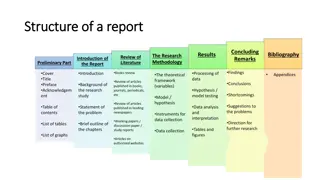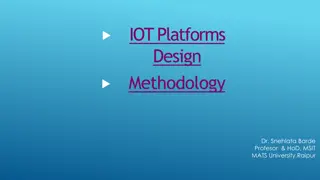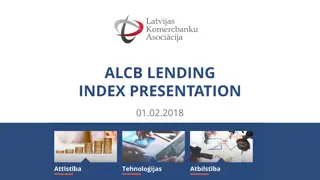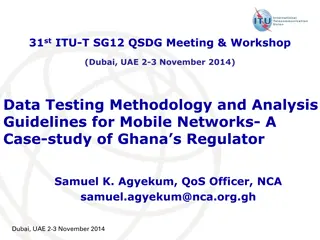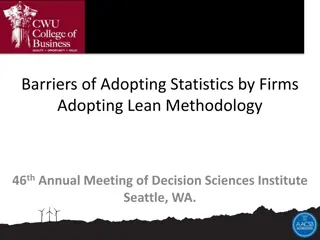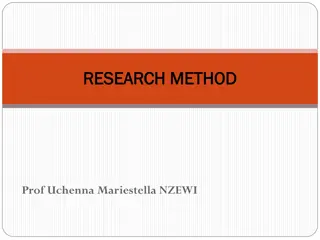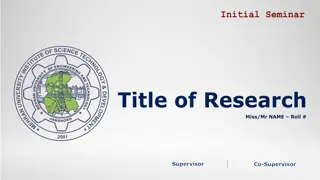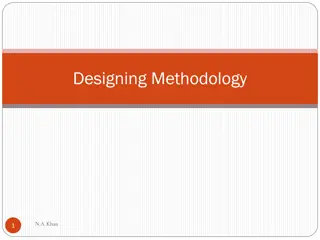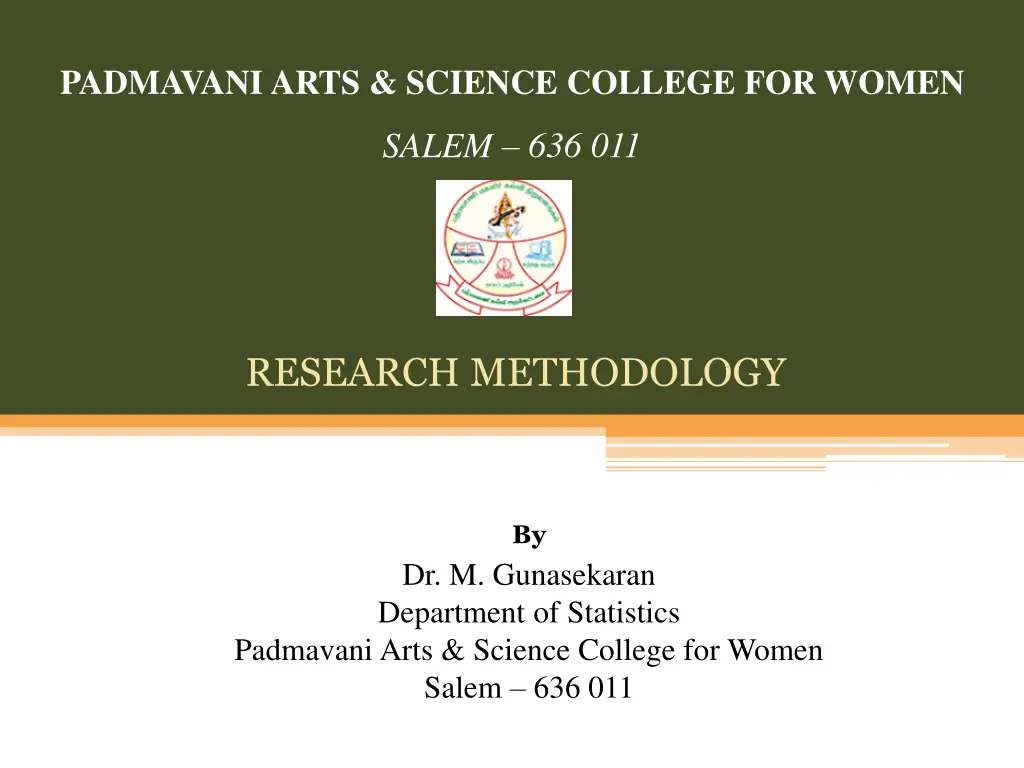
Understanding Research Methodology - Insights and Significance
Explore the essentials of research methodology including objectives, types, significance, steps in the research process, criteria for good research, and the importance of literature reviews. Research is crucial for scientific thinking, problem-solving, policy-making, and societal progress.
Download Presentation

Please find below an Image/Link to download the presentation.
The content on the website is provided AS IS for your information and personal use only. It may not be sold, licensed, or shared on other websites without obtaining consent from the author. If you encounter any issues during the download, it is possible that the publisher has removed the file from their server.
You are allowed to download the files provided on this website for personal or commercial use, subject to the condition that they are used lawfully. All files are the property of their respective owners.
The content on the website is provided AS IS for your information and personal use only. It may not be sold, licensed, or shared on other websites without obtaining consent from the author.
E N D
Presentation Transcript
PADMAVANI ARTS & SCIENCE COLLEGE FOR WOMEN SALEM 636 011 RESEARCH METHODOLOGY By Dr. M. Gunasekaran Department of Statistics Padmavani Arts & Science College for Women Salem 636 011
2 Research: Research is to discover answers to questions through the application of scientific procedures. Research is to find out the truth which is hidden and which has not been discovered as yet. Objectives of Research: To gain familiarity with a phenomenon or to achieve new insights into it. To portray accurately the characteristics of a particular individual, situation or a group. To determine the frequency with which something occurs or with which it is associated with something else. To test a hypothesis of a causal relationship between variables. Motivation in Research: Desire to get a research degree along with its consequential benefits. Desire to get intellectual joy of doing some creative work. Desire to be of service to society. Desire to get respectability.
3 Types of Research: Descriptive Vs. Analytical Applied Vs. Fundamental Quantitative Vs. Qualitative Conceptual Vs. Empirical Some Other Types Significance of Research: Research inculcates scientific and inductive thinking and it promotes the development of logical habits of thinking and organisation. The role of research in several fields of applied economics, whether related to business or to the economy as a whole, has greatly increased in modern times. Research provides the basis for nearly all government policies in our economic system. Research has its special significance in solving various operational and planning problems of business and industry. Research is equally important for social scientists in studying social relationships and in seeking answers to various social problems.
4 Steps in Research Process: Formulating the research problem. Extensive literature survey. Development of working hypothesis. Preparing the research design. Determining sample design. Collecting the data. Execution of the project. Analysis of data. Hypothesis testing. Generalisations and interpretation. Preparation of the report or the thesis. Criteria of Good Research: Good research is systematic Good research is logical Good research is empirical Good research is replicable
5 Objectives of Review of Literature: It provides theories, ideas, explanations or hypothesis which may prove useful in the formulation of a new problem. It indicates whether the evidence already available solves the problem adequately without requiring further investigation. It provides the sources for hypothesis. It suggests method, procedure, sources of data and statistical techniques appropriate to the solution of the problem. It locates comparative data and findings useful in the interpretation and discussion of results. It helps in developing experts and general scholarship of the investigator in the area investigated. It contributes towards the accurate knowledge of the evidence or literature in one s are of activity is a good avenue towards making oneself.
UNIT - II 6 Research Design: The formidable problem that follows the task of defining the research problem is the preparation of the design of the research project, popularly known as the ResearchDesign . Important concepts of Research Design: Dependent and independent variables Extraneous variable Control Confounded relationship Research hypothesis Experimental and non-experimental hypothesis-testing research Experimental and control groups Treatments Experiment Experimental units
7 Basic Principles of Experimental Designs: The Principle of Replication The Principle of Randomization Principle of Local Control Important Experimental Designs: Informal experimental designs: Before and after without control design After only with control design Before and after with control design Formal experimental designs: Completely randomized design (CRD) Randomized block design (RBD) Latin square design (LSD) Factorial design Sampling Design The technique or the procedure the researcher would adopt in selecting items for the sample.
8 Measurement Scales: Nominal scale Ordinal scale Interval scale Ration scale Collection of Data: Primary Data Observation Interview Through schedules Etc Secondary Data Various publications of the central, state are local governments Technical and trade journals Books, magazines and news papers Etc Processing and Analysis of Data: Editing Coding Classification Tabulation Analysis Interpretation
9 Interpretation and Report Writing: Steps in Writing Report Logical analysis of the subject matter Preparation of the final outline Preparation of the rough draft Rewriting and polishing of the rough draft Preparation of the final bibliography Layout of the Research Report Preliminary Pages Main Text Introduction Statement of findings and recommendations Results Implications of the results Summary End Matter Types of Report Technical Report Popular Report



